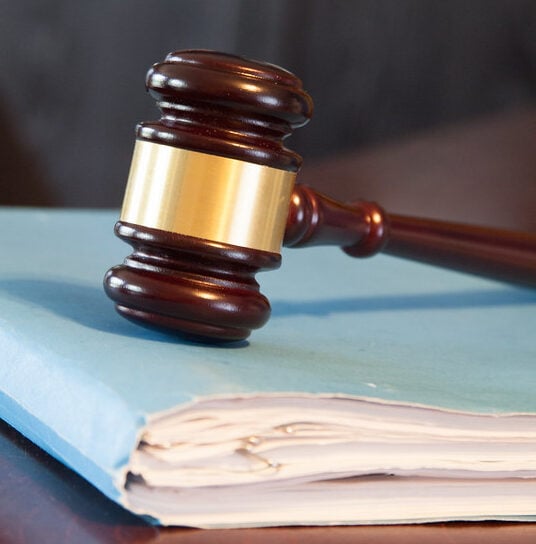Key Takeaways
- Representative LaMonica McIver filed a motion to dismiss her case, citing legislative immunity.
- She faced three counts after protesting outside a Newark immigration facility.
- Acting U.S. Attorney Alina Habba’s appointment is under federal challenge.
- A House effort to censure McIver failed after some Republicans voted to protect her.
- A judge recently ruled Habba may not legally serve as U.S. Attorney.
McIver Relies on Legislative Immunity for Case Dismissal
Representative LaMonica McIver, a Democrat from New Jersey, moved to dismiss federal charges against her. She argues the Constitution gives her legislative immunity. This protection covers lawmakers when they perform official duties. Moreover, McIver says her actions at an immigration facility were part of her oversight job. Therefore, she insists that her arrest and indictment on three counts must be dropped.
However, the acting U.S. Attorney for New Jersey, Alina Habba, insists McIver crossed a legal line. Habba first charged Newark’s mayor in the same protest. Later, she dropped his charges and secured McIver’s indictment. Now, McIver claims her case falls under legislative immunity and lies outside criminal reach.
How Legislative Immunity Applies to McIver’s Case
Legislative immunity protects members of Congress from arrest on civil matters related to their duties. For example, it covers votes, speeches, and interviews tied to official work. In McIver’s view, following ICE agents falls under her oversight role. Because of legislative immunity, she asks the judge to toss out her charges.
This legal shield first appeared in early U.S. history. It aims to keep lawmakers free from political pressure. As a result, they can debate and act without fearing criminal punishment. In addition, courts often uphold legislative immunity when actions directly relate to legislative work. McIver argues her protest served to inform Congress about immigration practices. Hence, she believes the rules protect her.
Background of the Protest
In May, McIver joined community leaders outside a Newark immigration center. She stepped through the gates of Delaney Hall after ICE agents made arrests. Law enforcement arrested her there for what they called “forcibly impeding” officers. Ultimately, she faced three counts of obstructing federal agents. McIver denies any physical force or intent to block officers. Instead, she says she simply watched their work.
Initially, Acting U.S. Attorney Habba charged Newark Mayor Ras Baraka alongside McIver. But she later dropped his case and focused on McIver’s conduct. The shift drew sharp criticism from local officials. They argued the charges targeted peaceful oversight rather than criminal wrongdoing.
Habba’s Appointment Faces Scrutiny
Alina Habba joined the U.S. Attorney’s office after working on former President Trump’s defense team. However, her path to the interim role raised legal concerns. Federal rules limit how long someone can serve without Senate confirmation. Once the 120-day limit passed, a federal judge refused to let Habba continue. In response, the Justice Department removed the U.S. Attorney they appointed and reinstalled Habba.
As a result, a judge recently ruled Habba may not legally hold her post. Consequently, critics question whether she had authority to bring charges against McIver in the first place. Therefore, if a court finds Habba’s position invalid, McIver’s motion gains more weight. Additionally, it could force the Justice Department to reassess many other cases her office filed.
Political Fallout and Censure Attempt
Last month, some Republican members of the House tried to censure McIver for her role in the protest. They argued that no lawmaker should interfere with federal officers. Yet, five Republicans broke ranks and voted to block the measure. Thus, the resolution failed. McIver called the vote a win for congressional oversight.
Moreover, the debate revealed deep partisan divides over immigration and law enforcement. Democrats stressed the need for transparency at detention facilities. Meanwhile, some Republicans saw McIver’s protest as lawbreaking. Still, the censure attempt’s failure showed that even some in her party value lawmakers’ right to watch federal actions.
What Comes Next in the Court
McIver’s motion to dismiss will first go to a district court judge. There, lawyers will debate whether her protest qualifies for legislative immunity. If the judge denies her motion, she may appeal to a higher court. Throughout, questions about Habba’s legal standing could sway the outcome.
Furthermore, if courts reject Habba’s appointment, the entire prosecution might be voided. That could set a precedent for other cases brought by interim U.S. Attorneys. On the other hand, if the judge upholds the charges, McIver could face trial on all counts. Either way, this fight will likely reach appellate courts before it ends.
In addition, legislators may push for clearer rules on interim U.S. Attorney appointments. Finally, the case highlights tensions between oversight roles and law enforcement mandates. Observers will watch closely to see how courts balance these interests.
Conclusion
Representative McIver’s motion to dismiss hinges on the principle of legislative immunity. She claims her protest was part of her congressional duties. Yet, Acting U.S. Attorney Habba’s own legal standing faces scrutiny. As both sides prepare for court battles, the outcome could reshape limits on lawmaker protests and interim prosecutor appointments. Ultimately, judges must decide how far congressional protections extend and whether Habba had authority to charge McIver at all.
Frequently Asked Questions
What is legislative immunity?
Legislative immunity is a constitutional protection for members of Congress. It shields them from civil or criminal suits over actions tied to official duties.
Why did McIver protest at the immigration facility?
She joined local leaders to oversee ICE arrests. She says her role was to report on conditions and practices at Delaney Hall.
What challenges does Acting U.S. Attorney Habba face?
A judge ruled she may not legally serve past a 120-day limit without Senate approval. This casts doubt on her authority to file charges.
How did the House censure vote unfold?
Republicans introduced a censure resolution against McIver. However, five Republicans joined Democrats to defeat it, allowing McIver to avoid formal rebuke.
